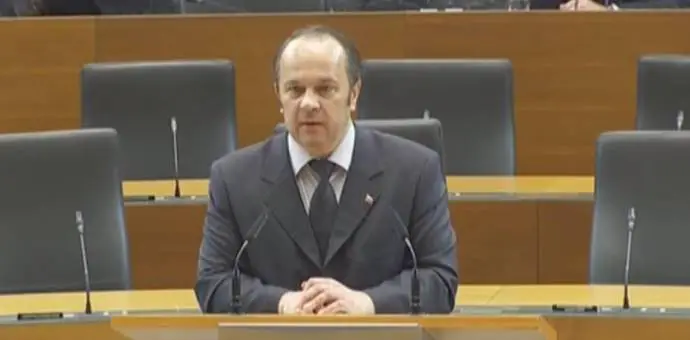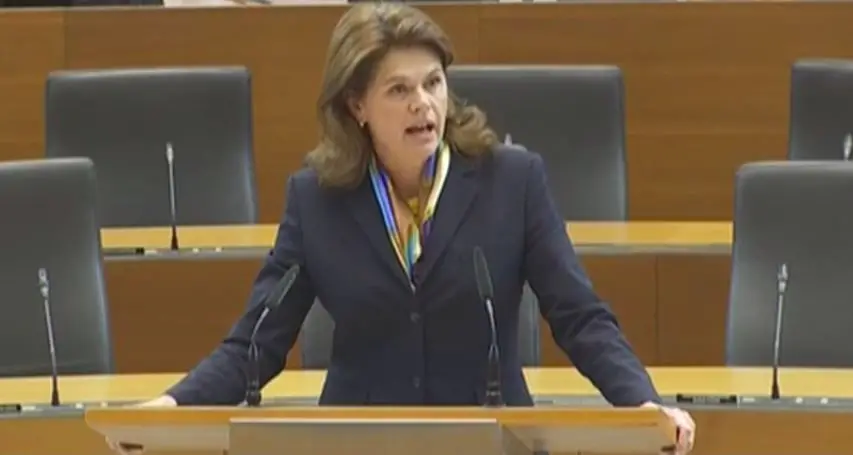With 60 votes in favour and 22 against, out of a total of 90 legislators, the National Assembly has decided to begin the process of constitutional change regarding the public funding of private elementary schools yesterday.
The decision concluded a four-hour discussion on the amendment of Article 57, paragraph 2, which states that “Primary education is compulsory and shall be financed from public funds.” The debate took place based on the proposal of the SD (Socialni Demokrati), which believes that the constitutional article should make a clear distinction between public and private education, and that constitution should only guarantee public funding for public schools, while the funding of private education should be regulated by law. A parliamentary majority of two thirds is needed for constitutional amendments, such as this measure, while other legislative bills only need a simple majority in the National Assembly.
The current legislation, which allows for public funding of accredited private school programmes to the sum of 85% of the public-school funding, was declared unconstitutional three years ago when the Constitutional court ruled that private schools should receive the same amount of funding per pupil as public ones. The National Assembly’s Education Committee had been working on an amendment to Article 86 of the Organisation and Financing of Education Act until the end of October this year, when it decided to opt for a constitutional change instead.
Alenka Bratušek (SAB) speaks in favour of the amendment
The 2014 ruling of the Constitutional Court on public financing of private schools was not the first of its kind. In its 2001 ruling the Court (in a different configuration) reached the opposite conclusion, when it declared that differentiation in the public funding of private and public schools is not unconstitutional. The parliamentary group SD thus cited constitutional ambiguity as the main reason for the proposed amendment.
The main opposition to this move comes from the SDS and NSi, who welcomed the last Constitutional Court’s decision on 100% financing of private schools. In her speech, Jelka Godec of the SDS stated that the proposed constitutional change is clearly targeting Catholic schools. Both parties opposing the constitutional change, the SDS and NSi, have been vocal promotors of Christianity, and particularly Catholicism, as part of Slovenian cultural heritage and hence an important, and what they believe to have been a historically supressed, element of the national identity.
SD and Levica representatives rejected the claim of the SDS and NSi that there were any ideological motives behind the proposed constitutional change by referring to the broader problems that the privatization of education brings, mainly the resulting divisions on the basis of social class, which, according to the speakers, can only be addressed by an easily accessible and ideologically neutral network of public schools. In response to the issue of social division in this context, many opposition MPs, notably Branko Grims of the SDS, pointed out that 100% financing of private schools would address this issue, by allowing poorer families to send their children to private schools as well.
Public schools in Slovenia are, by law, secular, and both political and confessional activites are prohibited within them. In contrast, private institutions may pursue educational policies in line with their religious or political worldview. The amendment to Article 57 now has to pass the Constitutional Commission of the Assembly, and if this is achieved then it needs to pass a vote in the National Assembly, with a two thirds majority needed in both cases.







